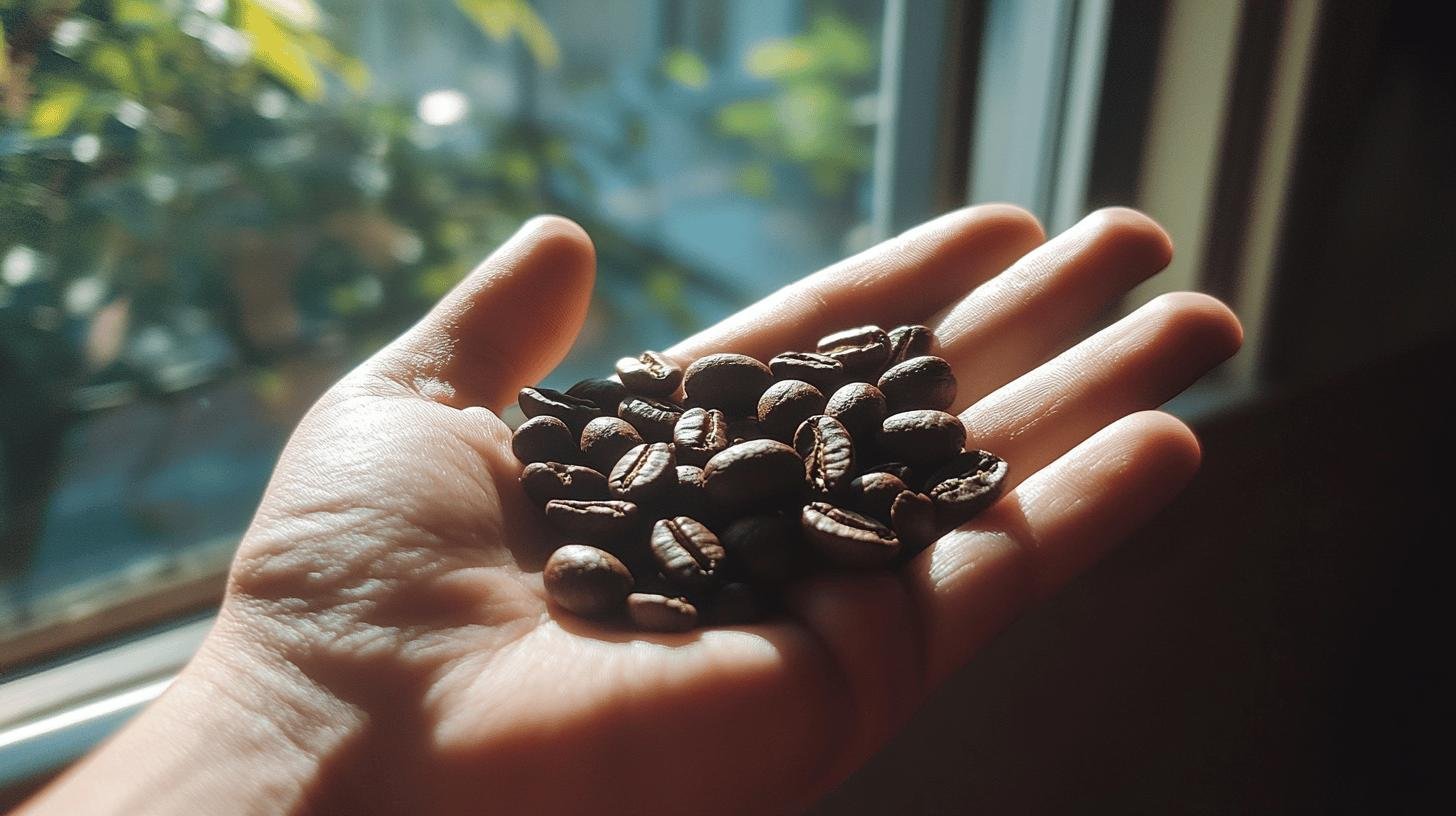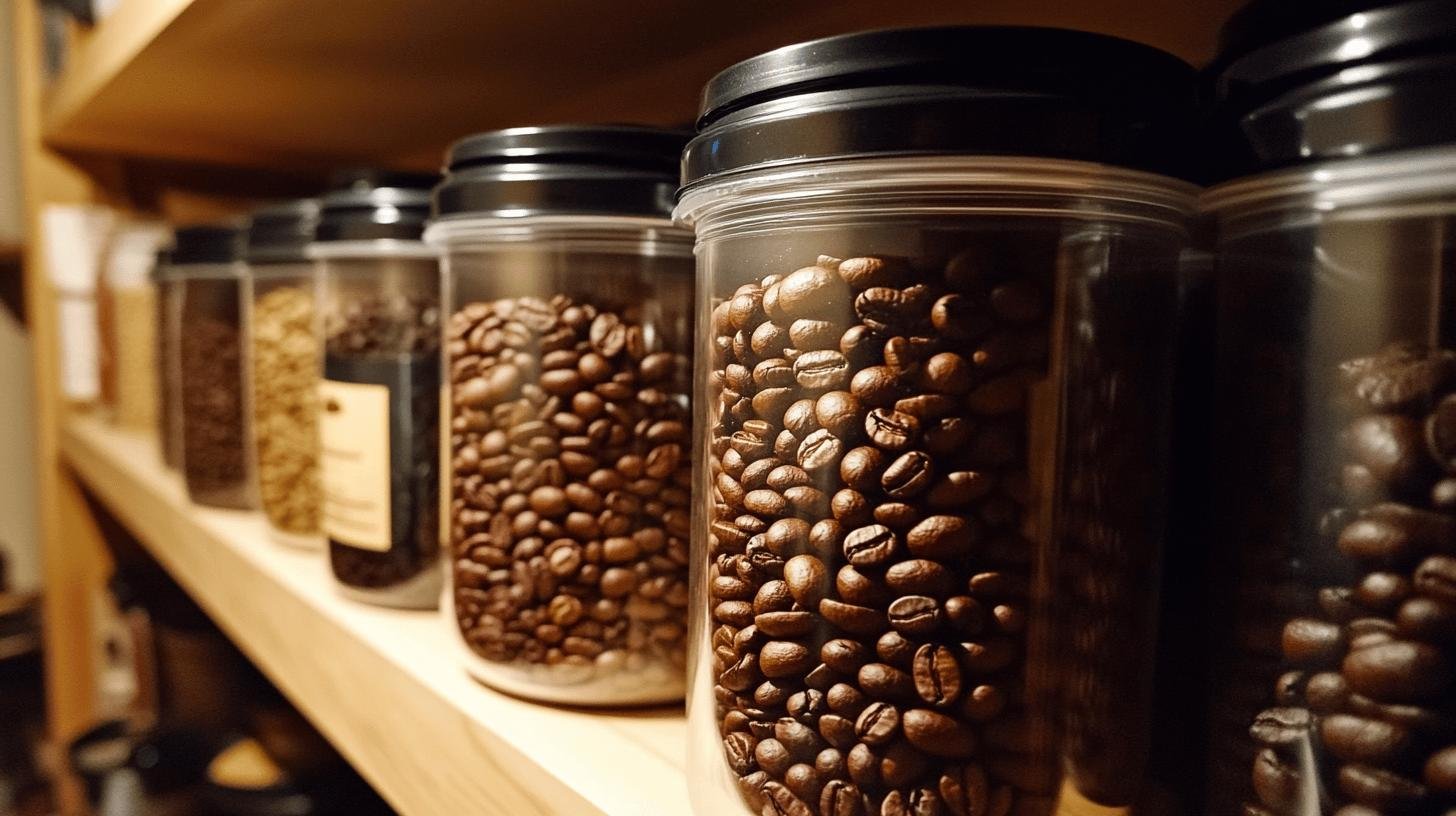
Emerging Approaches Redefining Craft-Focused Customer Experiences
Craft-focused small businesses have always relied on care, precision, and sourcing to stand out. What’s changing now is how those values are shown, not just

Do you know how long your coffee beans can last before losing their flavor and aroma? The truth is, coffee beans do go bad, and understanding their shelf life is crucial for maintaining that perfect cup of joe.
Stored correctly, coffee beans can maintain their quality for up to 9 months, but their freshness steadily declines over time. This article will explore the factors affecting the shelf life of coffee beans, highlight differences between whole and ground beans, and offer practical tips to keep your coffee tasting fresh for as long as possible.
Coffee beans can indeed lose their flavor and aroma over time. When stored properly, the typical shelf life of coffee beans ranges from 6 to 9 months. This timeframe allows coffee lovers to enjoy the beans’ optimal taste and scent. It’s important to understand that coffee beans do not “expire” in the traditional sense but rather degrade in quality.
Whole beans maintain their quality longer than pre-ground coffee due to reduced air exposure. If unopened, whole coffee beans can stay fresh for up to a year from the roast date. In contrast, pre-ground coffee often loses its flavor and aroma within a few weeks of being ground. Whole beans have a smaller surface area, which helps preserve essential oils and compounds that contribute to rich flavors.
To ensure a great coffee experience, buy beans in smaller quantities and store them in airtight, opaque containers. This helps protect the beans from air, moisture, light, and heat, all of which affect coffee quality.

Knowing if coffee beans have gone bad is key to ensuring a high-quality coffee experience. Use your senses—sight, smell, and taste—to identify spoiled coffee beans.
6 signs that your coffee beans have gone bad include:
Proper storage is crucial for maintaining the freshness of coffee beans.
The ideal storage environment for coffee beans includes keeping them in an airtight container, away from light, heat, and moisture.This helps preserve the beans’ essential oils and aromatic compounds.
Room temperature is best for storing beans, as it avoids the risk of condensation that can occur in colder environments like the refrigerator or freezer. Storing beans in the refrigerator or freezer can introduce moisture and odors, negatively impacting flavor and aroma.
Grinding the beans just before brewing will also help maintain their freshness and enhance flavor.
| Storage Method | Pros | Cons |
|---|---|---|
| Airtight container in a pantry | Maximizes freshness, avoids light and heat | Requires appropriate container |
| Refrigerator | Cool environment | Introduces moisture, absorbs odors |
| Freezer | Extends shelf life | Negative impact on flavor and aroma |
| Transparent container on the counter | Convenient | Exposure to light and heat |

Packaging plays a critical role in preserving the freshness and extending the shelf life of coffee beans. Proper packaging methods can significantly reduce exposure to air, light, moisture, and heat, all of which degrade coffee quality.
One effective way to maintain freshness is by using vacuum-sealed bags. These bags remove air from the package, preventing oxidation and preserving the beans’ essential oils and flavors. Coffee companies often use specialized packaging that includes one-way valves to release carbon dioxide without letting in oxygen, further maintaining freshness.
Checking the roast date on the packaging is crucial for ensuring maximum freshness. Coffee beans are at peak flavor within a few weeks of roasting, so purchase beans with a recent roast date.
Vacuum-sealing can extend the shelf life of coffee beans by several months. However, store the sealed bags in a cool, dark place to avoid exposure to heat and light.
For those who prefer using mason jars or other containers, ensure they are airtight. Although they might not offer the same level of protection as vacuum-sealed bags, airtight containers can still help maintain freshness.
Freezing coffee beans can extend their shelf life significantly, sometimes up to two years. This is helpful for those who buy beans in bulk or want to preserve specialty beans for long-term use.
When stored in an airtight container, freezing helps maintain the beans’ moisture content and prevent oxidation, which are critical for retaining flavor and aroma. By essentially pausing the aging process, the beans will stay fresher for longer.
However, freezing coffee beans is not without drawbacks. While it may preserve freshness if kept airtight, freezing can introduce moisture when the beans are taken in and out of the freezer. This moisture can affect the beans’ flavor and aroma, leading to a stale or off taste. Additionally, fluctuating temperatures can cause the oils in the beans to deteriorate, negatively impacting the overall quality of the coffee.
Pros:
Cons:
Storing coffee beans in a cool, dark, dry place remains the best practice for maintaining optimal quality.

Proper storage techniques are essential for maintaining the long-term freshness of coffee beans. Freshness directly impacts the flavor and aroma of your coffee, making it crucial to store beans correctly.
Whole beans stay fresh longer than ground coffee due to reduced air exposure, which helps preserve the essential oils and compounds responsible for rich flavors. For optimal freshness, transfer roasted coffee beans to an airtight, dark-colored container and store them in a cool, dark place like a pantry.
Airtight containers are the best choice for maintaining freshness as they prevent air, moisture, and odors from affecting the beans. Dark-colored containers are preferable because they block light, which can degrade the quality of the beans. Grinding the beans just before brewing will also help maintain their freshness and enhance the coffee’s flavor.
Additional tips for keeping coffee beans fresh over months include buying only the amount needed to avoid using stale beans. Bulk purchases may seem economical, but they often lead to wasted beans that lose their flavor and aroma over time. Storing beans in a cool, dark, dry place is fundamental to preserving their quality.
Understanding whether coffee beans go bad is crucial for maintaining their flavor and aroma. Freshness primarily depends on proper storage, with whole beans having a longer shelf life than pre-ground coffee. Identifying bad beans using your senses and storing them properly ensures a better coffee experience.
Keeping coffee beans fresh involves vigilance and knowledge, making each cup a delight.
Coffee beans can go bad, losing their flavor and aroma. Proper storage is essential to maintain their quality.
In an airtight container, coffee beans can last 6-9 months while retaining much of their flavor and aroma.
Unopened coffee beans can last up to a year from the roast date, though they will gradually lose flavor and freshness.
Coffee beans can go bad in the fridge due to moisture and odors seeping into the beans, affecting their flavor.
Coffee beans that are bad may have a stale smell, lack aroma, and taste flat or bitter.
To keep coffee beans fresh for months, store them in an airtight, dark-colored container, away from light, heat, and moisture.

Craft-focused small businesses have always relied on care, precision, and sourcing to stand out. What’s changing now is how those values are shown, not just

How can brands create a more balanced and memorable customer experience by blending artisanal product quality with thoughtful everyday rituals that keep people coming back?

Independent coffee shops have always been about more than caffeine—they’re hubs of creativity, connection, and care. As café culture continues to evolve, new trends are

Introduction Independent cafes win when they feel like the neighborhood’s living room and operate with the discipline of a great kitchen. Below is a quick

Discover how top specialty coffee brands create lasting loyalty through storytelling, sourcing, and community connection. Real tips from 6 industry experts.

Discover the ultimate showdown between two beloved coffee brewing methods: the French press and Chemex. Explore how each technique caters to distinct palates, with the French press delivering bold flavors and the Chemex presenting a bright, clean taste.

Unlock the secrets to brewing the perfect cup of coffee with our comprehensive guide on using a coffee scale. Discover how precise measurements enhance flavor and consistency while eliminating bitterness.

Discover how water temperature plays a vital role in brewing the perfect cup of coffee. This article delves into the ideal temperature range of 195°F to 205°F for optimal flavor extraction, enhancing the enjoyment of high-quality beans.

Discover the world of curated specialty coffee bundles, perfect for enthusiasts seeking quality and craftsmanship. This article explores the benefits of ethically sourced, small-batch beans from brands like Equipoise Coffee, offering diverse flavor profiles that elevate your brewing experience.